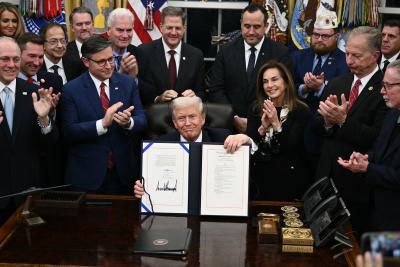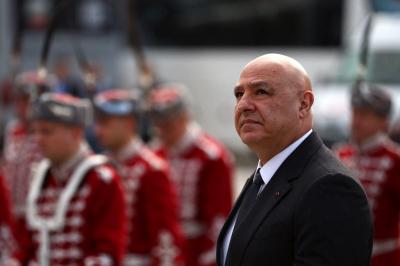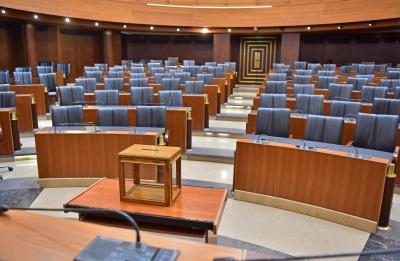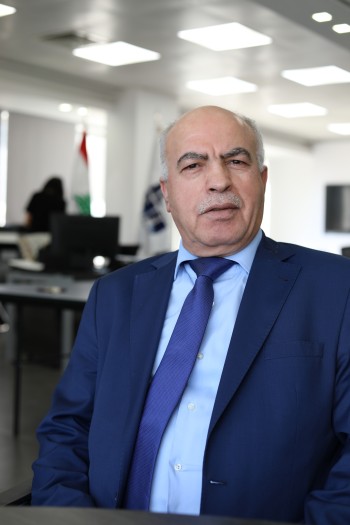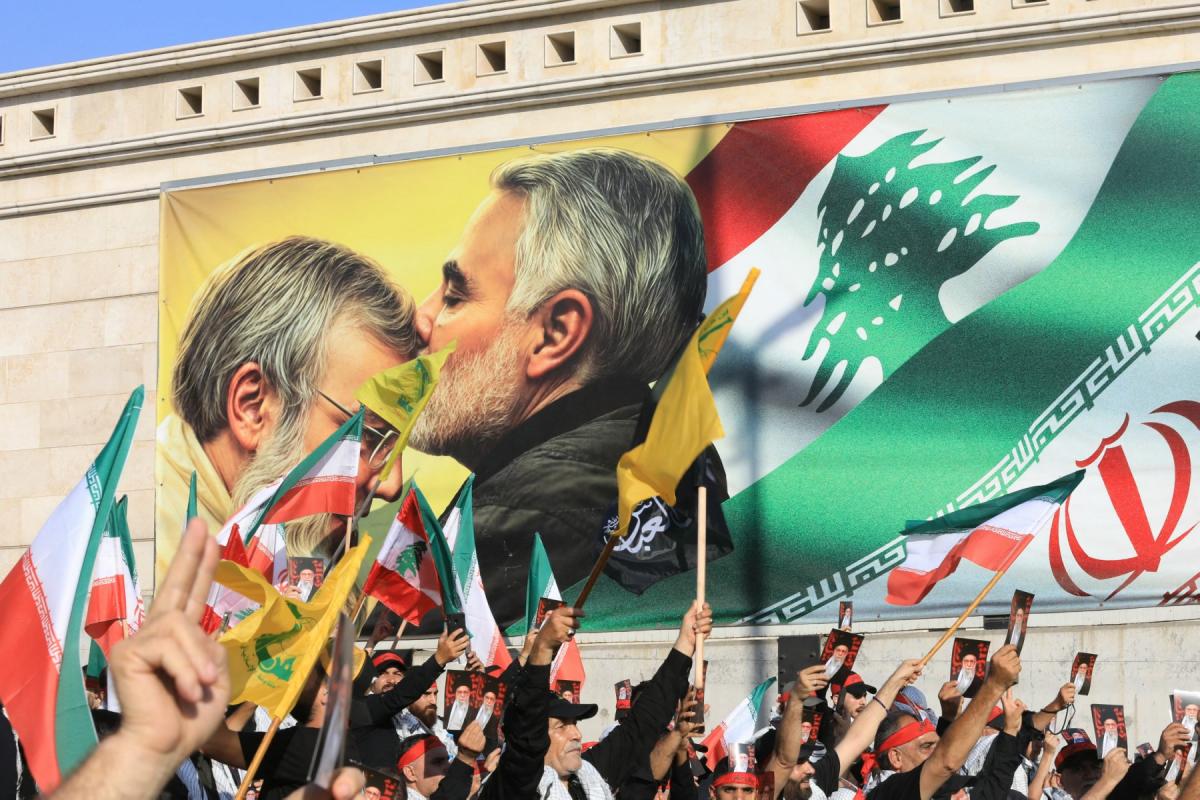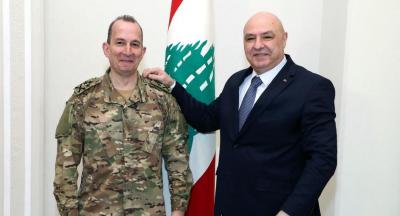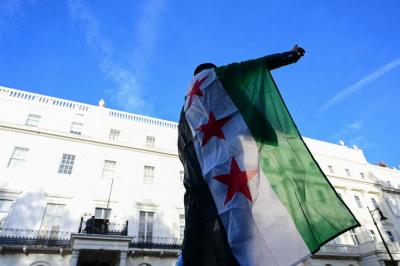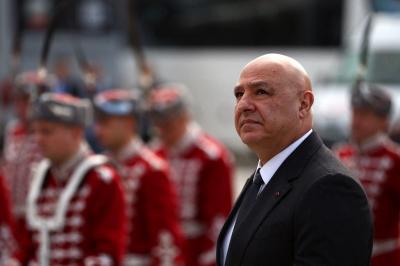No sooner had the U.S.-Israeli war on Iran ended than American-Western-Israeli pressure on the Lebanese government ramped up, demanding the disarmament of "Hezbollah". This pressure was preempted by Lebanese-American envoy Thomas Barrack’s message to Lebanese officials during the twelve-day war, urging them to disarm "Hezbollah" and place decisions of war and peace solely in the hands of the state—a formula that is effectively a code word for disarmament. Barrack reportedly wants this completed within weeks.
These pressures coincided with calls from domestic political forces, notably the Lebanese Forces party, to set a timetable for disarmament and to convene a cabinet session to approve it. Meanwhile, former Progressive Socialist Party leader Walid Jumblatt surprised both domestic and foreign observers by announcing that three weeks ago, his party handed over its weapons to the Lebanese Army after gathering them “in a certain location” in Mukhtara, urging other parties with weapons to follow suit.
Jumblatt’s move raised many questions about its timing and motivations, especially given his well-known ability to sense what is being planned for Lebanon and the region abroad.
Washington and Tel Aviv had intended the war on Tehran to be the “final chapter” of conflicts in their plan to reshape the Middle East, a vision long championed by Benjamin Netanyahu. They believed that after crippling Iran’s regional “arms” and rendering them ineffective, it was essential to strike Iran itself—the head of the “Axis of Resistance”—to cause the entire axis to collapse. But it appears the winds of war did not blow in favor of American-Israeli calculations: despite Iran suffering heavy and painful nuclear, military, and even political strikes, the Iranian regime they hoped would crumble actually emerged more cohesive during and after the war.
Regardless of the scale, what befell Iran mirrored what "Hezbollah" endured—painful blows to its political and military leadership—but the group did not fall, as evidenced by Israel’s continued war against it, supported by the U.S., since "Hezbollah" and its allies remain the main obstacle to the Middle East “change” project. Perhaps this is why the American-Western-Israeli campaign intensified, pressuring the Lebanese government to disarm "Hezbollah" within weeks—before the UN Security Council rules on the fate of UNIFIL forces in the south, which are likely to see their mandate extended.
Response to Barrack’s Message
Lebanese authorities are working on a unified response to the American message delivered by Barrack, reportedly containing three key points: setting a timetable for disarming illegal weapons—specifically "Hezbollah"’s arsenal; approving the internal and international reforms demanded; and addressing Lebanese-Syrian relations.
There is momentum toward convening a cabinet session after the Ashura commemoration to discuss these three files. Among the proposals being discussed is to synchronize the disarmament timetable with an Israeli withdrawal from Lebanese-occupied territories. It is said that Israel may begin by pulling out from five southern hills as a first step once the Lebanese government approves the disarmament timetable. Another report indicates that the U.S. expects the Lebanese government to adopt mechanisms placing weapons exclusively under state control within a week of announcing the timetable, with the process to be completed within six months.
Barrack visited Saudi Arabia shortly after his last trip to Lebanon, meeting with Foreign Minister Prince Faisal bin Farhan and the official in charge of the Lebanese dossier, Prince Yazid bin Farhan, to discuss his mission in Lebanon and Syria.
It is clear that the United States has intensified efforts to stabilize the new Syrian leadership under President Ahmed Al-Sharaa. Washington has communicated this strategy to its regional and Western allies. President Donald Trump also raised the issue with his Turkish counterpart, Recep Tayyip Erdoğan, during a NATO summit, agreeing on close cooperation regarding Syria’s future under Al-Sharaa’s leadership. However, they did not address Lebanon, Syria’s close neighbor—a potentially deliberate omission.
An International-Regional Alliance
There is also talk of Lebanon preparing to join an American-Turkish-Syrian-Gulf alliance to support Syria, securing a stake in the upcoming reconstruction of Syria and future oil and gas extraction. So far, no company has submitted new bids to explore Lebanon’s maritime resources after the two failed and solitary attempts by TotalEnergies in blocks 4 and 9 during Michel Aoun’s presidency. Meanwhile, no concrete steps have been taken internally or externally to reconstruct the areas of southern Lebanon, Beirut, its southern suburbs, or the Beqaa Valley damaged by the Israeli war.
It is also reported that the U.S., Western nations, Arab states, and Turkey will shape their relations with Lebanon based on how it engages with the new Syrian leadership. These countries want Lebanon to establish clear relations with Syria’s new government and secure cooperation from Lebanese political forces. Such expectations have sparked concerns among some Lebanese circles about the possibility of Lebanon slipping back into Syrian tutelage.
The Shiite Position
Notably, leaks have circulated suggesting Iran has abandoned Lebanon’s Shiites, leaving them with no choice but to abandon their core positions and adopt new ones—including supporting a peace treaty between Lebanon and Israel to “protect themselves.” The promotion of these leaks seems intended to manufacture broad Lebanese support for a peace deal with Israel, since it cannot happen without Shiite consent. Pressure on Lebanon’s Shiites appears to be mounting in this direction.
However, public statements by leaders of the “Shiite Duo” reject this path. They express flexibility and willingness to discuss solutions to the weapons issue through a national defense strategy and uphold the implementation of UN Security Council Resolution 1701, but categorically refuse peace with Israel, arguing that the 1949 armistice agreement suffices.
Highlighting this stance, Jaafari Mufti Sheikh Ahmad Qabalan declared, “The people of the south are not a gift to anyone, and the resistance that reclaimed Lebanon over decades will not agree to sell the country.”
It is certain that this position is not merely Qabalan’s personal view but reflects the true stance of the Shiite Duo and their allies.
Please post your comments on:
[email protected]
 Politics
Politics


